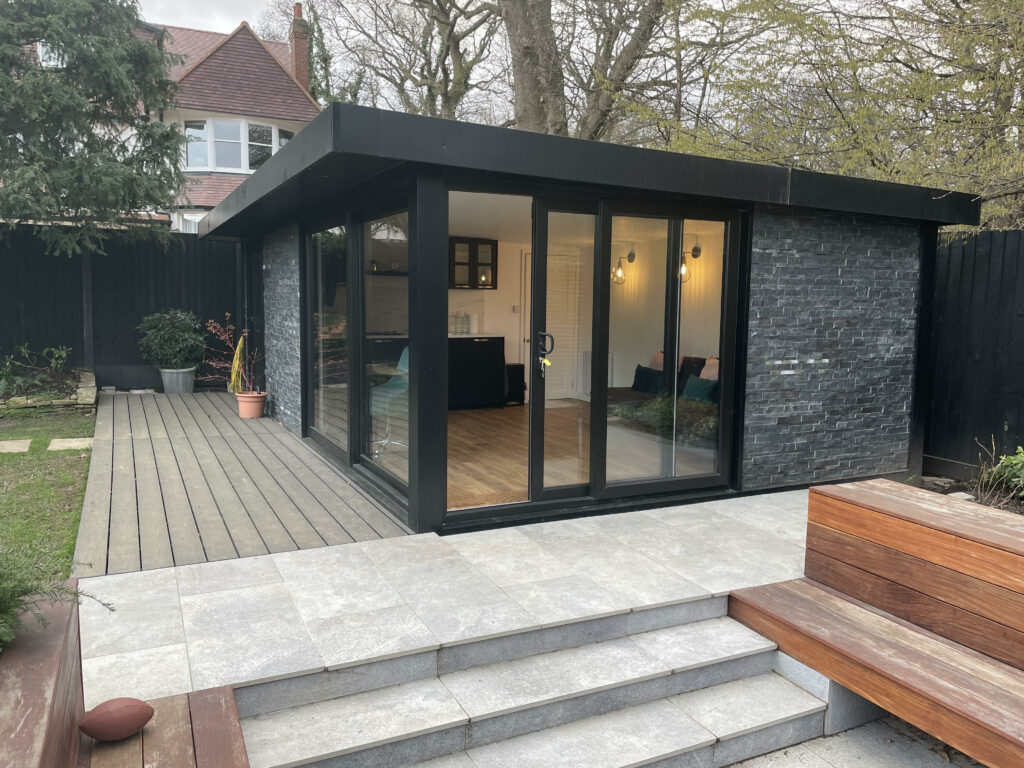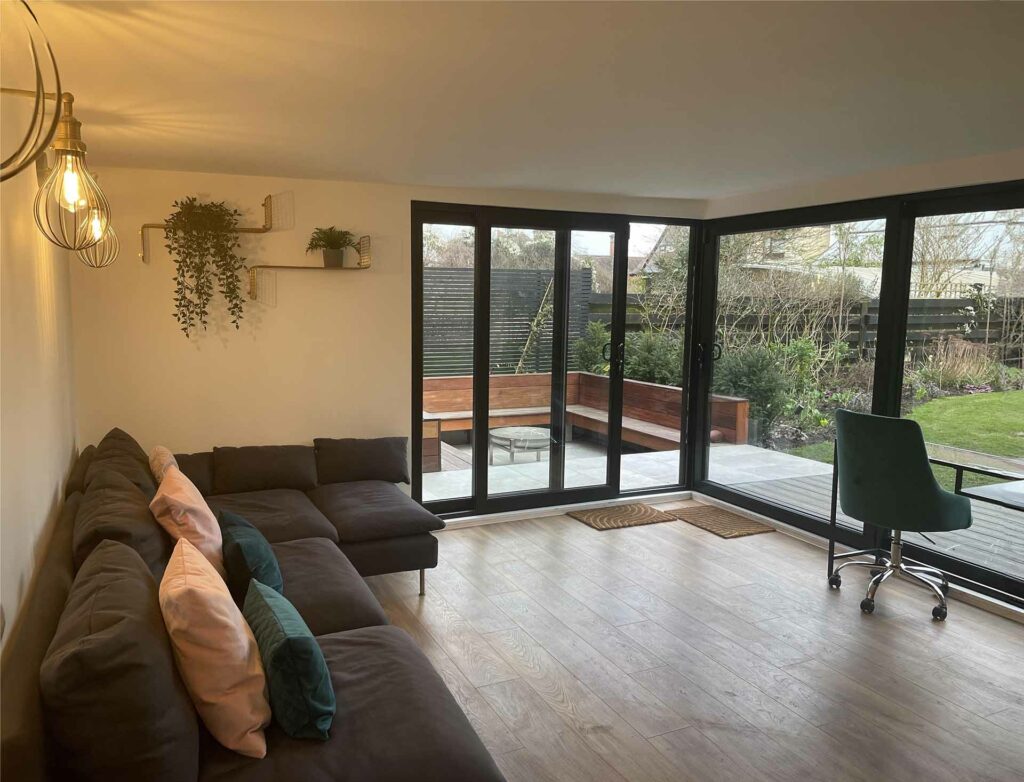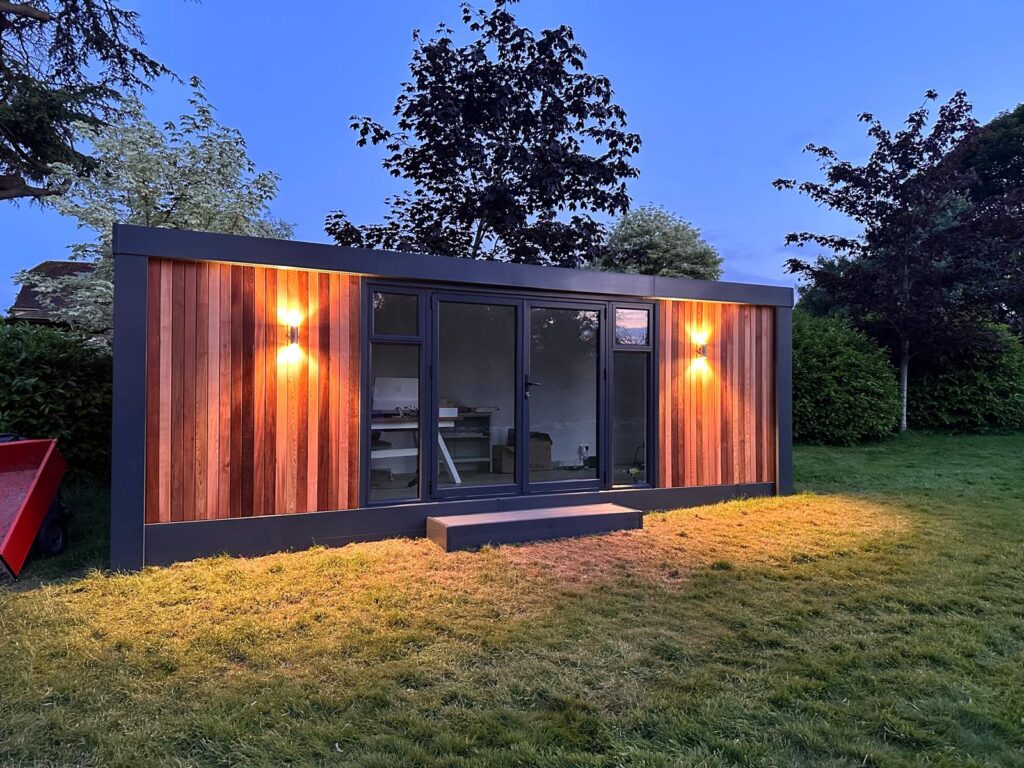
When it comes to adding more space to your home, there are a few options to consider. Two popular choices are a garden room and a traditional home extension. Both can provide the extra space you need, but they come with different benefits, costs, and considerations. In this article, we’ll explore the differences between a garden room and a home extension, and why a garden room might be the perfect solution for your needs.
A garden room is a versatile, standalone structure typically located in the garden of your home. It’s fully insulated, making it suitable for year-round use, and can be customised for a variety of purposes—whether it’s a home office, gym, art studio, or a quiet retreat away from the hustle and bustle of the main house. At Rockwood Garden Studios, we specialise in creating high-quality, purpose-built garden rooms that blend seamlessly into your outdoor space.
Unlike a traditional home extension, which physically connects to your home, a garden room offers the benefit of separation. This allows you to create a multi-functional, independent space, perfect for today’s remote work environment or simply as an escape from everyday household activities.
A home extension, on the other hand, is a permanent addition to your home, usually built to add more living space, such as an extra bedroom, kitchen, or larger living area. Extensions can be rear, side, or double-storey, depending on the space available and your specific needs. While extensions increase the overall size of your home, they often require significant planning, time, and investment to complete.
While extensions provide additional living space directly connected to the house, they can be costly and disruptive during construction. For homeowners looking for more flexible, cost-effective alternatives, a garden room could be an ideal solution.
When comparing the cost of a garden room to that of a home extension, garden rooms are generally more affordable. Extensions typically involve significant construction work, higher labour costs, materials, and often the involvement of architects and planners. A home extension usually requires planning permission, which can add both time and fees to the process.
At Rockwood Garden Studios, we pride ourselves on offering competitive pricing as a family-run business. While each garden room is bespoke, as a general guideline, you can expect to pay between £1500 and £1800 per square metre for a custom-built garden room. This is a cost-effective alternative to extensions, which can be considerably more expensive, depending on the complexity and size of the project.

Another important factor to consider is the time and disruption involved. A garden room can be installed within weeks, causing minimal disruption to your home life. The construction happens outside your main living space, meaning less noise, dust, and stress.
On the other hand, a home extension is a major project that can take months to complete, often involving disruptive building work inside and outside your home. For homeowners looking for a hassle-free way to add space, the fast and efficient installation of a garden room makes it a much more convenient option.
One of the key benefits of a garden room is its flexibility. It can serve as a home office, gym, art studio, guest room, or even a space for hobbies like yoga or music. At Rockwood Garden Studios, we also offer soundproof garden rooms, perfect for music studios, podcasting, or simply creating a quiet workspace away from household noise. Because garden rooms are detached from the main house, they offer the advantage of privacy and a true sense of retreat. Plus, as your needs change, the space can easily be adapted for new purposes.
In contrast, a home extension is more permanent and typically serves a specific function, such as expanding the kitchen or adding a bedroom. While this is great for certain needs, it may not offer the same level of versatility that a garden room provides.
One of the biggest advantages of a garden room is that it usually doesn’t require planning permission, making the installation process much smoother and faster. In most cases, garden rooms fall under “permitted development rights,” provided they meet certain conditions, such as being under a specific height and located at least two metres from your property boundary.
As long as your garden room does not exceed 2.5 metres in height and is not placed at the front of your property, it’s likely to avoid the need for planning permission. This is in stark contrast to home extensions, which typically require full planning permission and must adhere to complex building regulations.

Both garden rooms and extensions can add value to your property, but the cost-effectiveness of a garden room provides an attractive return on investment. While extensions offer more permanent living space, the lower cost, faster installation, and versatility of a garden room make it a great way to increase the appeal and value of your home without the expense and hassle of a traditional extension.
When deciding between a garden room and a home extension, it largely depends on your needs, budget, and tolerance for disruption. Garden rooms are a cost-effective, quick, and versatile alternative, offering a separate, functional space without the complexity of a traditional extension.
At Rockwood Garden Studios, we specialise in bespoke, fully insulated garden rooms, designed for year-round use. Our premium materials and custom designs ensure a seamless process from start to finish. Whether you need a home office, gym, or creative studio, our garden rooms provide a stylish, sustainable extension to your living space. Explore our range and contact us for a free consultation to start transforming your garden today.